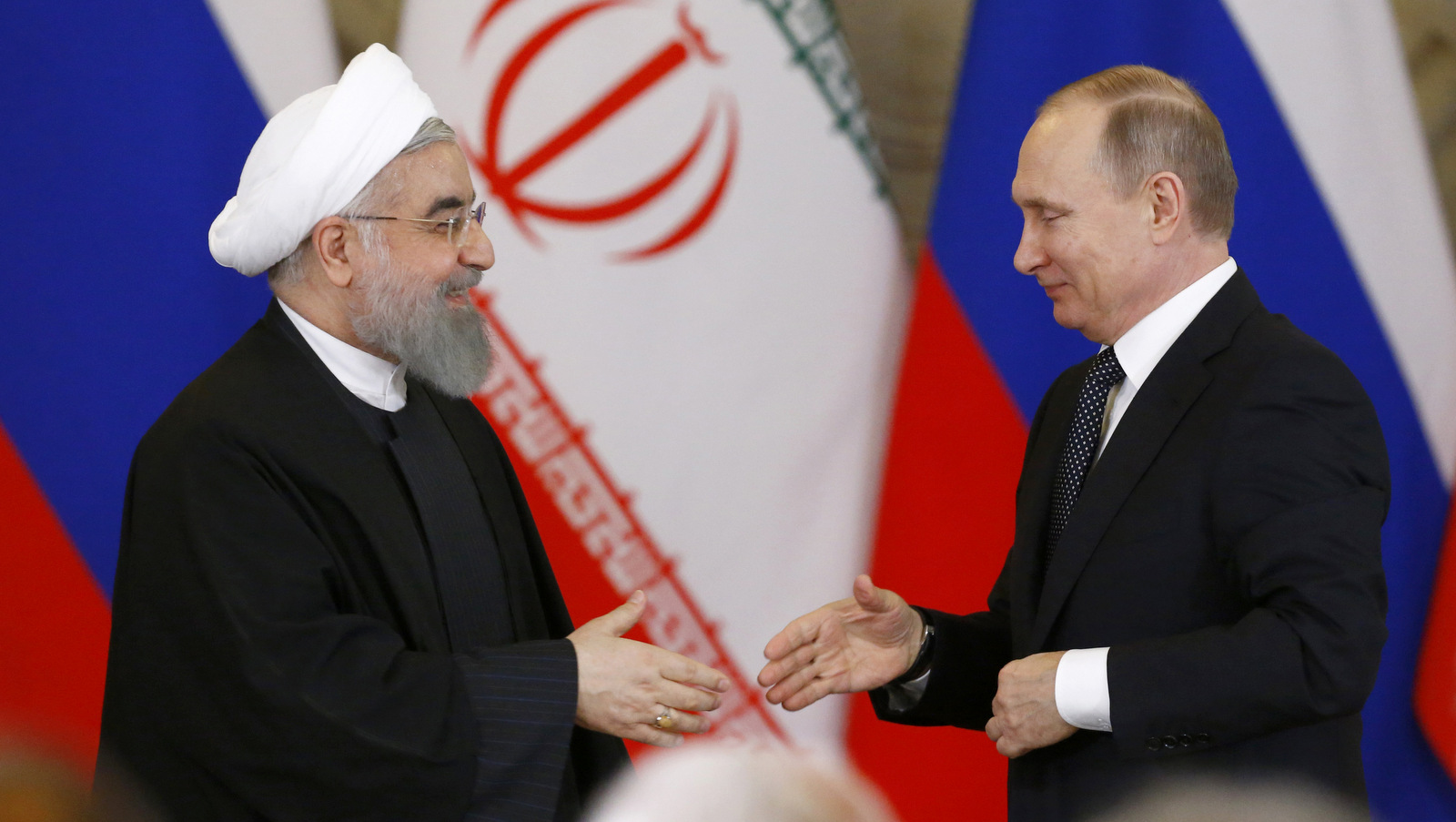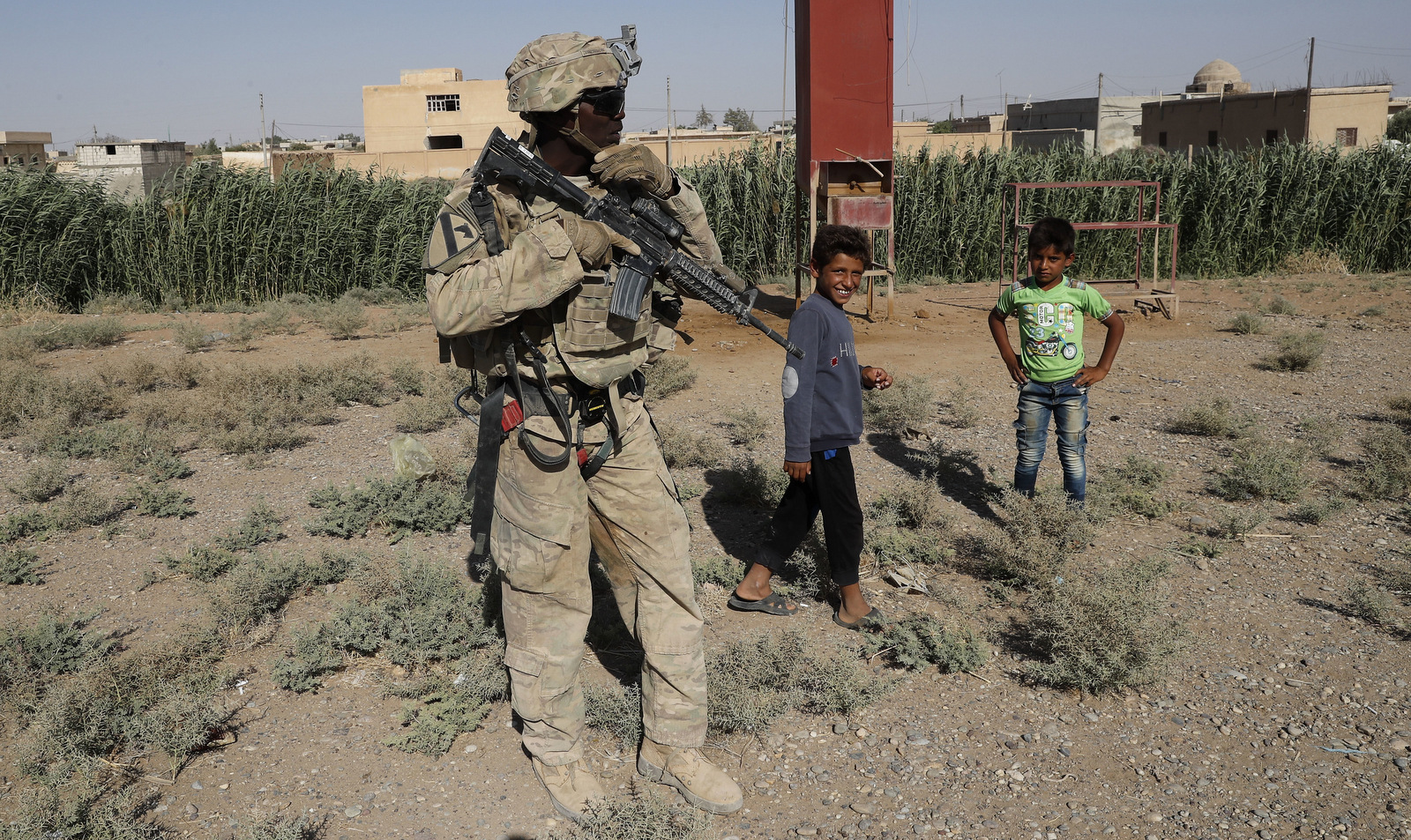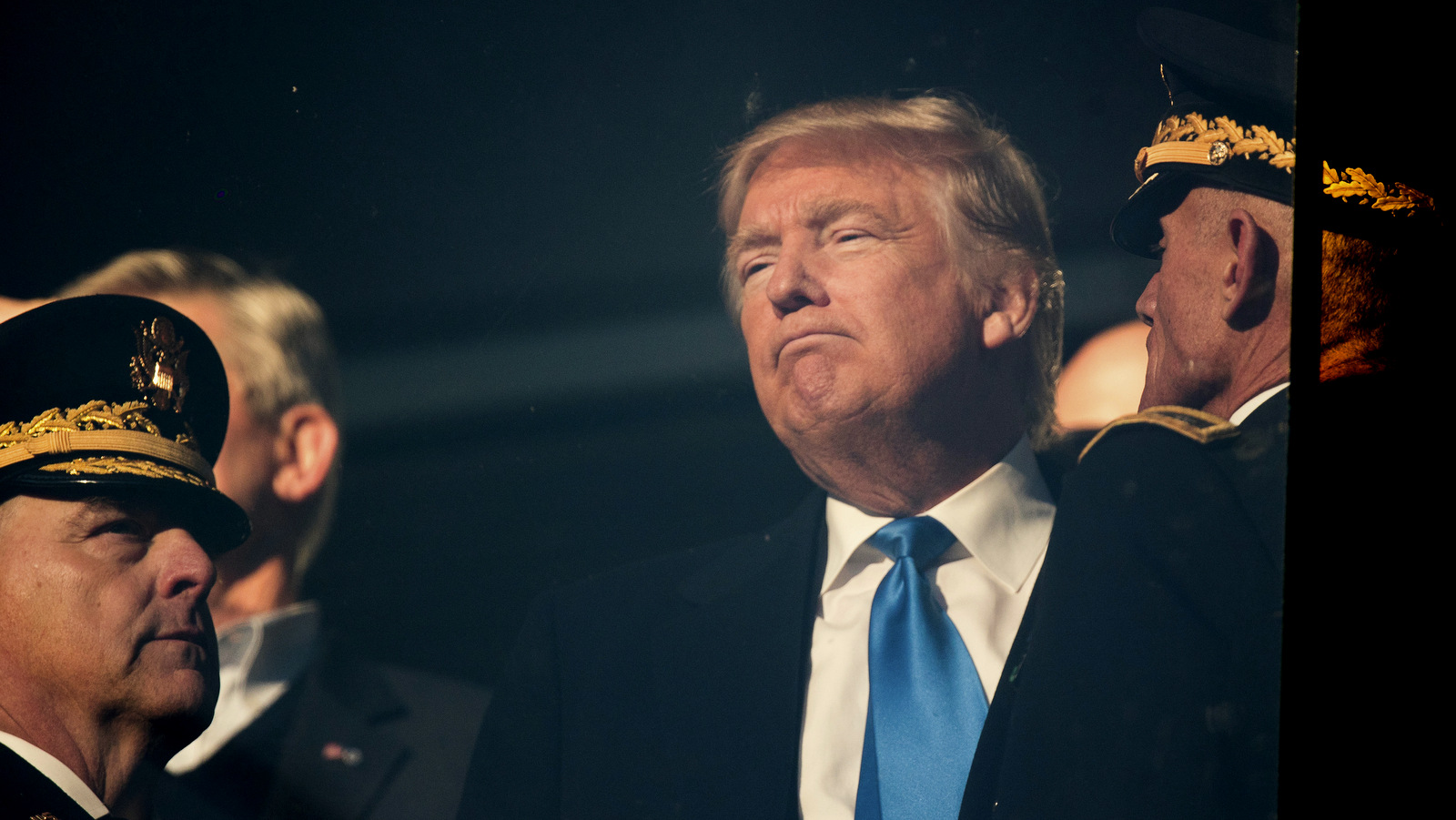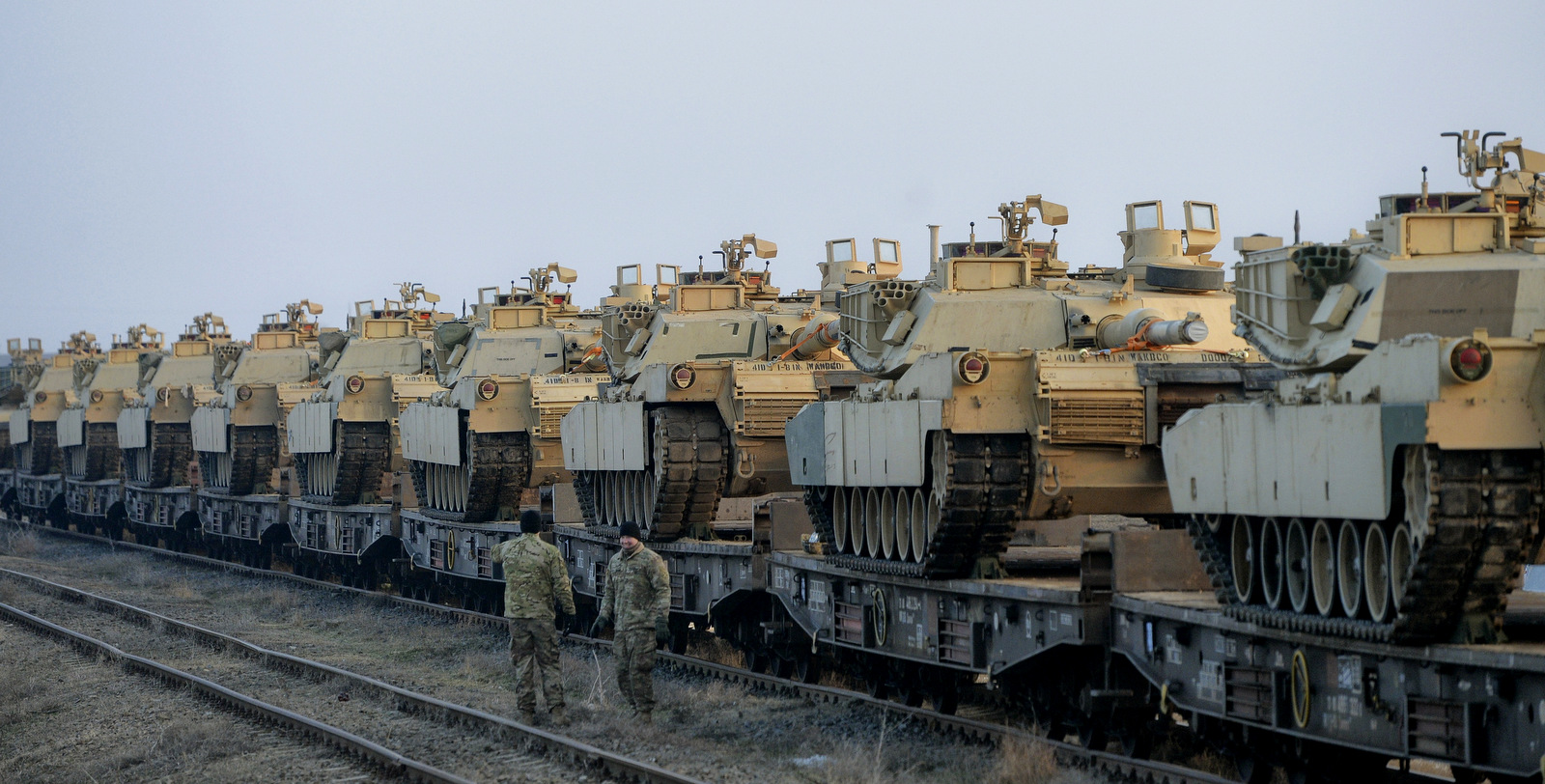A new study released by the U.S. Army War College’s Strategic Studies Institute and sponsored by various branches of the Department of Defense (DoD) has revealed what many in other nations have known for years, but has been slow to dawn on the United States itself – that the corporatist U.S. empire is quickly approaching collapse. This empire – composed of U.S. government agencies, corporations, and U.S.-dominated financial institutions – has long sought to create a “global order” characterized by its subservience to Western corporate dominance that uses the U.S. military and other military organizations like NATO to bring other nations into compliance with its interests.
More specifically, the study – authored by a mix of academics and retired servicemen at the Strategic Studies Institute (SSI) and the U.S. Army War College – comments on the U.S.’ loss of global pre-eminence, leading to a “post-primacy” world where major threats to the existing status quo range from long-time rivals, such as China and Russia, to more abstract concerns such as widespread “resistance to authority” and the uncontrolled spread of information.
While this may be the first study where the Pentagon more or less admits that the U.S. empire is fraying at the seams, it is not the first time that Department of Defense has intimated that it anticipates nothing short of chaos in the not-so-distant future. For instance, in 2009, the Pentagon began conducting “war games” that simulated financial collapse scenarios on a global scale.
A few years later in 2014, investigative journalist Nafeez Ahmed reported that the DoD was paying universities throughout the U.S. millions of dollars to model “tipping points” and risk scenarios for large-scale civil unrest throughout the U.S. and the rest of the world. According to Ahmed, the program indicated that the Pentagon was preparing for mass civil breakdown.
Related: Famine Plagues Somalia, Yemen Amid US Military Adventurism, Empire Building
This latest report is proof that the Pentagon is well-aware that the current status quo is unsustainable, as other nations, as well as many of the U.S.’ own citizens, are unwilling to be subjected to U.S. government demands that are not in their best interests. However, as instead of working to resolve the situation in a way that is fair to all parties, the study proposes that the U.S. do everything in its power to maintain the increasingly fragile U.S.-dominated global order.
Defending the status quo at all costs
According to the report, top rivals like Russia and China, as well as other nations that have long found themselves in the U.S.’ crosshairs, such as Iran and North Korea, hold the lion’s share of the blame for the U.S.’ loss of global dominance.
While government statements to the public often paint the actions of these “hostile” nations in aggressive terms that stoke panic, the report is quite candid in its assessment, stating that these countries are threats because they pursue their own national interests instead of those of the United States. This act, in and of itself, is seen as undermining America’s position in the “global order.”

The report’s authors argue that Russia and China, chief among U.S. rivals, “are engaged in a deliberate program to demonstrate the limits of U.S. authority, will, reach, influence, and impact” that ultimately seeks “to reorder their position in the existing status quo in ways that — at a minimum — create more favorable circumstances for pursuit of their core objectives.” Thus, the report plainly states that Russia and China do not pose meaningful threats to American national security, but rather to American political, economic, and social influence, as they are “bent on revising the contemporary status quo.”
Of course, these countries are largely seeking to revise the U.S.-dominated status quo in an economic sense. Russia and China have sought to strategically increase their gold reserves while also setting up alternative banking systems that directly challenge U.S.-controlled financial institutions like the International Monetary Fund and the World Bank. These moves have limited the ability of the U.S. and its allies to strongarm Russia and China by threatening their access to these institutions or the SWIFT financial system.
Related: South Sudan: US Stirs Brew Of Blood & Oil As China Threatens Western Hegemony
The case with Iran and North Korea is similar. The report diverges from public government statements on these two nations, not even mentioning that they are perceived as “nuclear threats” as the media establishment has inaccurately painted them. Instead, these nations are criticized in the report as blocking U.S. imperial influence in their respective parts of the world.
As the report states: “At a minimum, they [Iran and North Korea] intend to destroy the reach of the U.S.-led order into what they perceive to be their legitimate sphere of influence. They are also resolved to replace that order locally with a new rule set dictated by them.”
The expansion of U.S. corporate and military dominance
Though the report is surprisingly honest in its assessment of why these foreign nations find themselves at odds with the United States, its suggested solution brings no surprises. Instead of coming to terms with the fact that it may soon be on equal footing with other nations, the report sees the vast expansion of the U.S. military as the only option, despite the existence of approximately 800 U.S. overseas military bases already.
The report, however, doesn’t call for just any expansion of the military. Rather, it seeks the creation of a military force capable of overpowering any rival or bloc of rivals so it can allow the U.S. to “dictate or hold significant sway over outcomes in international disputes.”
In other words, the solution to the U.S.’ loss of dominance is to create a military so powerful that it can bully other nations into submission. This, of course, undermines the Department of Defense’s assertion that the U.S. military’s primary role is defensive.

However, an exceedingly powerful military would not be used just to allow the U.S. to guide international political outcomes. The report also notes that another goal of massive military expansion would be to ensure that the U.S. and its partners enjoy “unimpeded access to air, sea, space, cyberspace, and the electromagnetic spectrum in order to underwrite their security and prosperity.” It states that the “failure of or limitations on the ability of the United States to enter and operate within key regions of the world, for example, undermine both U.S. and partner security.” Therefore, countries in these “key regions” that try to maintain sovereignty over their own borders and territory could be seen – from the perspective of the report – as undermining U.S. security.
Such unbridled access to these areas by the U.S. military would also allow the U.S. empire to minimize any “purposeful, malevolent, or incidental interruption of access to the commons, as well as critical regions, resources, and markets.” As the report notes, such struggles over the U.S.-led economic order and nations who wish to have more of a say in how their resources are used are part of the new era of “persistent conflict.”
One of the key resources that has long driven U.S. military action is fossil fuels, namely oil and natural gas. Russia, along with other “hostile” nations like Iran and Venezuela, find themselves in conflict with the U.S. as their oil and/or gas industries are independent of the U.S.-dominated system. However, in Asia, the situation is slightly different with China’s economic power in and of itself a threat to U.S., particularly its manufacturing sector and large U.S. treasury holdings. North Korea is rich in coal and also produces significant amounts of opium, another substance that has influenced U.S. military action against sovereign nations in the past.
Watch | US Is Doubling Down On Its Endless War In Afghanistan
It states that some nations “are fighting globalization and globalization is also actively fighting back. Combined, all of these forces are rending at the fabric of security and stable governance that all states aspire to and rely on for survival.” Again, the report candidly points out the U.S. military is not just intended to ensure political supremacy, but economic as well – thereby placing those nations who resist U.S.-led capitalist globalization in “persistent conflict” with the United States.
The Pentagon has long resorted to military expansion and similar means to maintain its position as what was, for decades, the world’s most powerful military. However, the report’s justifications for such expansion are deeply troubling, given that any nation choosing to serve its own legitimate national economic interests is automatically a threat to be countered if those interests conflict with perceived U.S. interests.
This may be one of the clearest indications to date that the U.S. government knows that its long-held dominant position is not due to “American exceptionalism,” but rather suppression of other nations serving their own, often wholly justified, agendas for the betterment of their own people.
Psychological warfare and inconvenient truths
With the report’s frank assessment of perceived “risks” and its less-than-agreeable solutions, the document itself provides enough insight into the inner workings of U.S. imperialism to debunk the common myths used to justify it, such as American exceptionalism and the U.S.’ desire to “bring democracy” and fight for “human rights” in other nations.

Not content to let its honesty get the better of it, the report proposes what is perhaps the most disturbing solution of all, specifying the Pentagon’s need to wage a war against a more abstract enemy: information, particularly “inconvenient” yet truthful information.
Such truthful information was deemed by the report’s authors as among the more dangerous drivers of civil unrest and mass destabilization, particularly facts that – while true – are seen as damaging the U.S.’ global reputation.
These “dangerous” facts are divided into several categories.
First are “inconvenient” facts, which expose “details that, by implication, undermine legitimate authority and erode the relationships between governments and the governed.” In other words, this category includes all facts which reveal government irresponsibility, incompetence, corruption or crime.
Second are “perilous” facts that involve “exposing highly classified, sensitive, or proprietary information that can be used to accelerate a real loss of tactical, operational, or strategic advantage.” This category ostensibly includes information revealed to the public by whistleblowers such as Edward Snowden and Chelsea Manning.
Third are “toxic” facts that are true but “exposed in the absence of context” and therefore sour “important political discourse.” The exposure of U.S. torture programs or war crimes would seem to fall in this category. The report considers such “toxic” facts as the “likeliest to trigger viral or contagious insecurity across or within borders and between or among peoples.”
Related: ‘Empire Strikes Back’: Eric Draitser On Western Destabilization Of BRICS
As a result of the perceived danger that truth presents to the U.S. empire, the report recommends that the Pentagon work to thwart the uncontrolled spread of information. “Wide uncontrolled access to technology that most now take for granted is rapidly undermining prior advantages of discrete, secret, or covert intentions, actions, or operations,” the report warns.
Another solution to this supposed problem is the use of propaganda through the “strategic manipulation” of public opinion, particularly in the United States. Such propaganda is seen of the utmost importance within the U.S. as “the U.S. homeland, individual American citizens, and U.S. public opinion and perceptions will increasingly become battlefields.”
Of course, the glaring oversight here is that the report’s authors believe that it is the truth itself that is a threat to U.S. interests and the “legitimacy” of U.S. empire, not the disagreeable behavior that the facts reveal. Given these particular findings of the report, the “post-primacy” world might as well be the “post-truth” world.
Read the Pentagon-commissioned report below:
Feature photo | Servicemen of the “Fighting Eagles” 1st Battalion, 8th Infantry Regiment, walk by tanks that arrived via train to the US base in Mihail Kogalniceanu, eastern Romania, Tuesday, Feb. 14, 2017. Andreea Alexandru | AP


